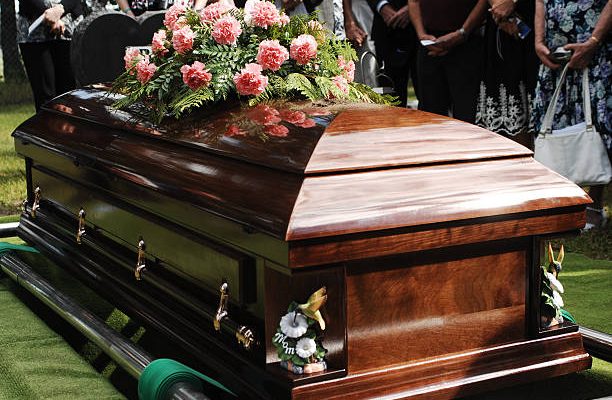
The Anambra State Government on Thursday, reiterated the ban on the public display of caskets across the state.
The ban on the public display of caskets is one of the provisions in the state burial law passed in 2019 to control burial and funeral activities in Anambra state.
The law was passed and signed into law during the tenure of former governor, Willie Obiano in 2019.
The law has, however, become contentious in recent times as the state government reiterated its determination to implement all the provisions of the law, stressing that the law is still in force.
Also, one of the provisions in the law is that all mortuary attendants are to report to the Ministry of Health on any corpse that has stayed beyond one month from the date it was deposited.
The government has urged the residents not to violate the law.
Below are things to know about the burial law:
1. The Anambra State Burial/Funeral Ceremonial Control Law was enacted by the House of Assembly of Anambra State on April 9, 2019.
2. The law states that the burial/funeral ceremonies of an indigenous deceased person should commence with the registration and payment of N1,500 to the town union.
3. The law also restricts the erection of billboards, banners and posters of deceased persons.
The law states that “No person shall erect any billboard, banner or posters of the deceased. Persons are allowed to erect only directional posts. No directional post shall be erected before seven days to the burial date and should be removed not later than seven days after the burial date.”
4. The law also warned that any person who contravenes the provisions shall upon conviction pay a fine of N100,000 or go to jail for six months, or both.
5. Corpses are not to be deposited a corpse in the mortuary beyond two months from the date of death. Any person who contravenes this shall pay a fine of N100,000 or serve an imprisonment term of six months, or both.
6. Roads are not to be blocked for any burial except with permission from the appropriate local government authority.
7. The law says there shall be no public display of a casket for the purpose of fabrication and sale in the state, and any person who contravenes is liable to pay a fine of N50,000 or go to jail for one month, or both.
8. The law also prohibits second funeral rites after burial except in the case of legacy.
9. The law also prohibits wake-keep of any kind for any deceased person in the state, noting that all vigil-mass/service of songs/religious activity for the deceased before burial shall terminate by 9 pm.
10. The law also restricts food, drink, live band, and cultural entertainers during and after any vigil-mass/service of songs/religious activity for the deceased.
11. All embalmed corpses are not to be exposed for more than 30 minutes.
12. The law also warned that undertakers should not be more than six in number and there should be no undertakers’ display during the burial ceremony.
13. Burials are not to be held on any local market day of every town in the state, adding that no funeral brochure should be made except for the Order of Mass/Service.
14. it also states that “no person shall subject any relation of a deceased person to a mourning period of more than one week from the date of burial/funeral.”
15. If found guilty, the law states that the magistrate court shall, to the exclusion of any other court, have original jurisdiction over matters specified under the Anambra Burial Law.







